Adults and kids socialize and interact with others through a screen every day (this was unimaginable 20 years ago). It is a habit for children to be active on several social media platforms at once (I wonder how they manage to succeed).
They spend many hours chatting, stalking, getting information, playing games, and watching videos. Social Media has a huge impact on children’s mental health.
Kids nowadays carry smartphones like we carried our toys around when we were little.
But their screen time is often unproductive and ineffective. As social media usage popularity has increased, the positive and negative effects on kids’ mental health have increased too.
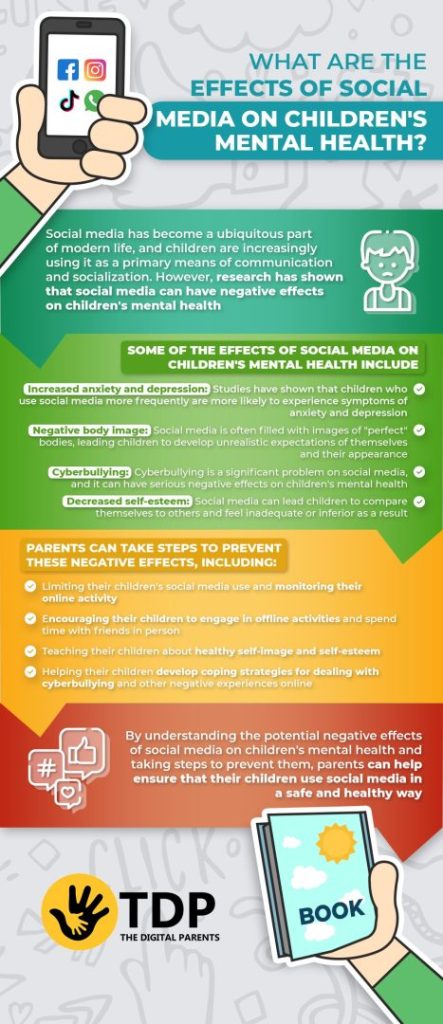
Negative Effects of Social Media on Children’s Mental Health
We all know that social media can have major negative effects on kids’ development. Excessive and obsessive social media usage contributes to developing serious behavioral changes.
Children that are too busy with social media isolate themselves from family members and friends. Isolation is a sign of the beginning of our kids’ mental health problems caused by social media.
Anxiety and Depression
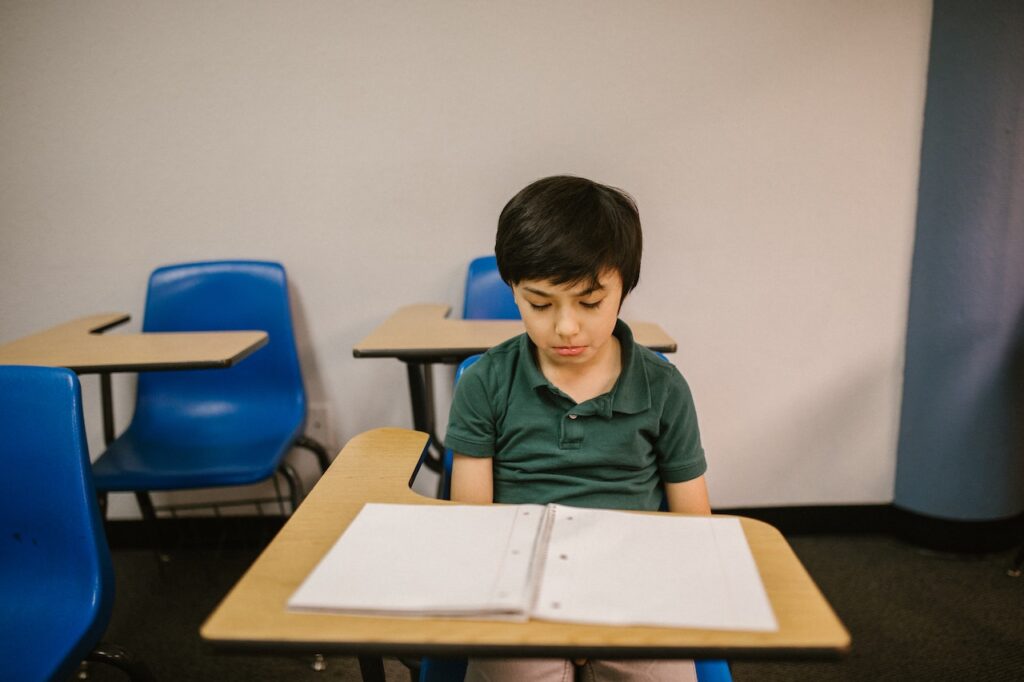
Our kids see images and pictures of the perfect body, hair, face, and lifestyle (which are 100% fake because of filters) and find themselves average. This may lead to sadness, frustration, anger, and low self-esteem.
A combination of these complex feelings results in anxiety and nervous behavior at first, then less energy and enthusiasm, which leads to depression. It is a stage where kids can manifest an absolute loss of faith and even will to live.
Addiction and Insomnia
Studies show that at least half of all children are addicted to tech, most of which use social media.
By getting addicted to social media platforms our little ones forget to sleep and somehow it becomes a habit. Because of the blue light exposure, kids can’t fall asleep and don’t get quality sleep, which results in a slow morning and low energy to face the activities.
Cyberbullies on Social Media
Social media are places where cyberbullies thrive. When kids become victims of this abnormal behavior, their mental health is damaged, and they feel:
- Confusion and misunderstanding;
- Low self-esteem and shame;
- Stress, frustration, and fear;
- Panic attack;
- Isolation and depression;
Positive Effects of Social Media on Children’s Mental Health
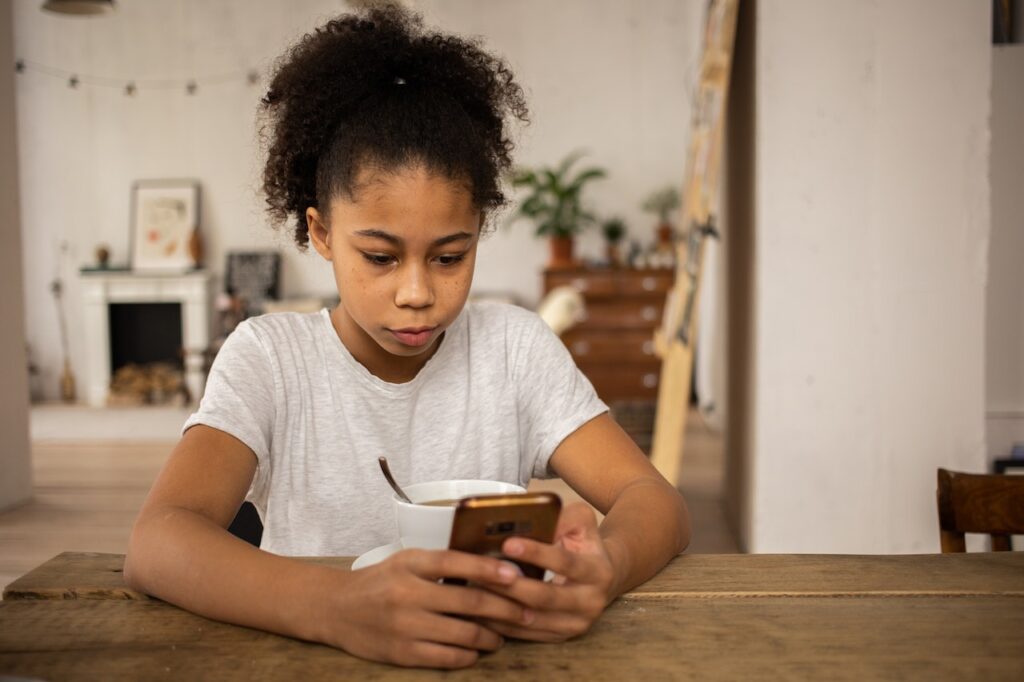
Everything has two sides, just like a coin. Social media has both positive and negative effects, depending on the screen time and the quality of the content. When children use social media responsibly (they often don’t) they can see the positive effects.
Social media stimulates kids to communicate openly, even though some kids are shy and can’t interact in person. So with the help of social media platforms, kids are released from social anxiety, interact easily with self-confidence, and have the feeling that they are part of or belong to some community.
Social media also helps kids to take part in various groups with similar interests. They meet people with different backgrounds, personalities, and views. The most positive effects of tech include:
- Encouraging support regarding similar interests between the members;
- Embracing personal identity;
- Accepting others’ opinions and different perspectives;
- Productive debate on several topics;
- Keeping up with news and trends;
- Improved social skills, which can be used in face-to-face communication as well;
Factors That Influence the Impact of Social Media on Children’s Mental Health
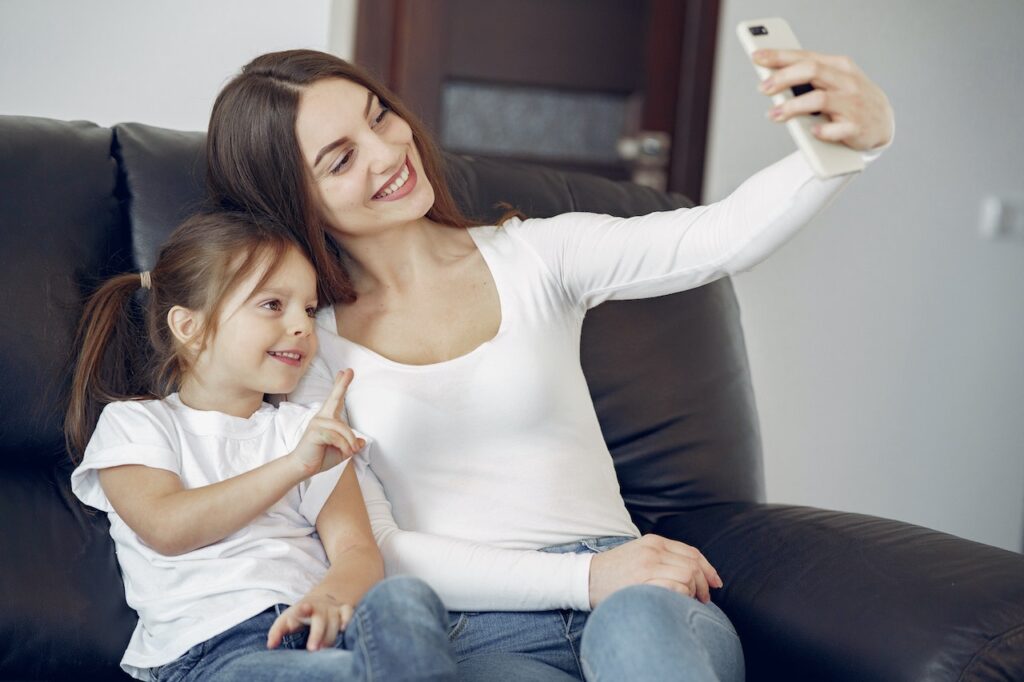
So far we have discussed the positive and negative effects of social media on kids’ mental health but what are the factors that influence these effects?
Firstly let’s find out whether the amount of time that kids spend on social media has a positive or negative impact on their mental health.
If our kids regularly have little social media screen time they have a smaller chance to develop an addiction and embrace the positive sides of social media more. This also develops self-confidence, a chance to learn and gain the latest news, showing respectful feelings, and building honest personalities.
If our kids spend excessive amounts of time on social media they damage their mental health and risk having serious problems like anxiety, frustration, isolation, low focus and concentration, addiction, and depression.
On the other side, the quality of the content our little ones are exposed to is also a factor that influences the impact of social media on children’s mental health. If our little ones watch appropriate content that stimulates their personality growth, they strengthen their mental health and build a strong character that can face future challenges.
On the other hand, if they face inappropriate content or behavior their mental health is crushed and the consequences are:
- Panic attacks;
- Fear and isolation;
- Behavioral issues;
- Physical negative changes;
- Anxiety and depression;
Strategies for Promoting Positive Mental Health Among Children Who Use Social Media
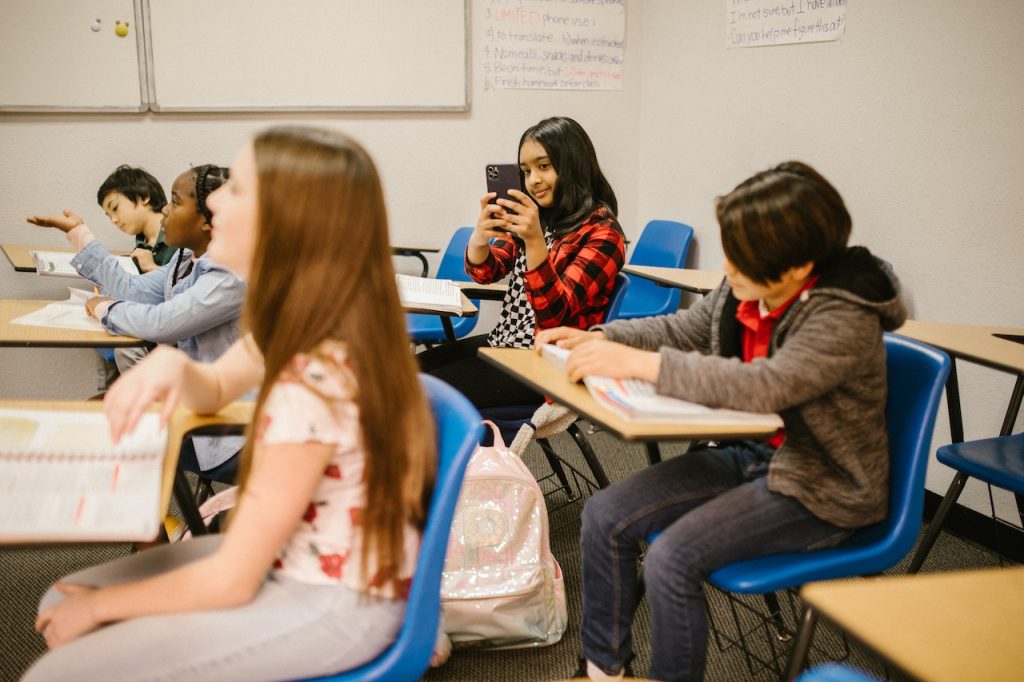
Social media is a very interesting and amusing place (how often do we get lost in the infinite loop of scrolling through posts).
But our main parenting goal is to raise healthy kids both physically and mentally. Here are some of the strategies for promoting positive mental health among children who use social media:
- Be a role model to your kid and explain how their profile on social media should look like;
- Stimulate your little ones to expand their knowledge and skills;
- Set boundaries and limit screen time;
- Set parental control and monitoring apps;
- Teach children to think twice before posting some content or picture;
- Report and block inappropriate content or behavior; Protect personal information and keep it private;
- Keep your name, address, phone number, and password to yourself;
Conclusion
As we analyzed the effects of social media on children’s mental health, we should activate our parental “spidey-sense” to avoid negative impacts and motivate our children to develop healthy habits and practice productive and controlled social media usage.
Track your kid’s activities on social media, and be there for your kid because you are your children’s biggest hope and help.







